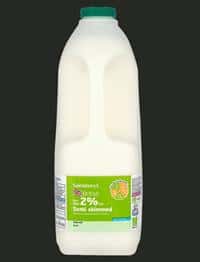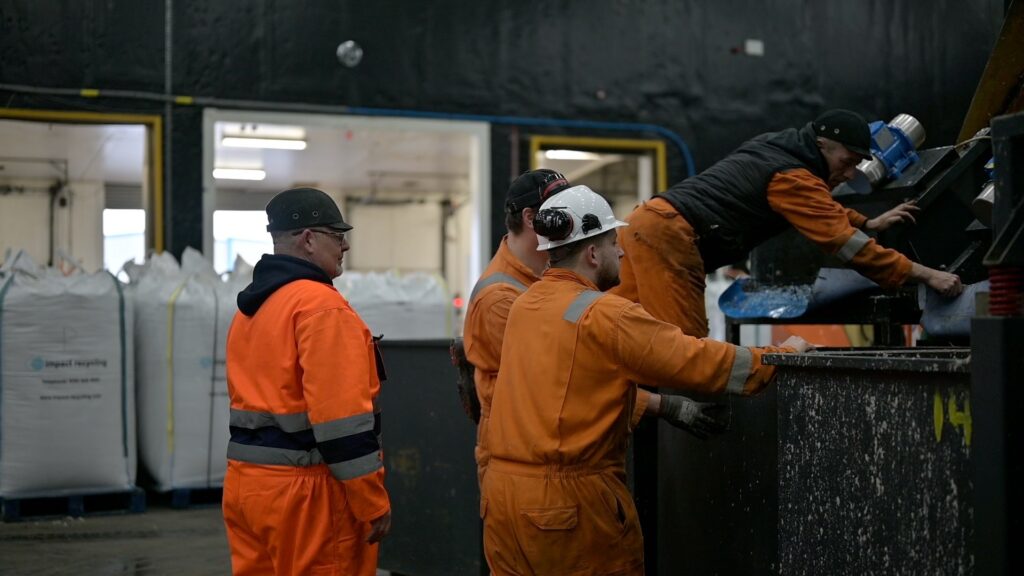And, the supermarket chain has also revealed that it has seen an increase in the sales of its milk in plastic pouches, which require 75% less packaging than standard milk bottles and, Sainsbury's hopes, will help it to help reduce its packaging by one third by 2015.
In a 2009 progress report on the Roadmap, which sets a strategic steer for sustainability in the milk supply chain, Defra said it expected 25% of milk bottles supplied from the dairy sector would have 10% recycled content by 2010. The next target in the Roadmap is 30% recycled content in milk bottles by 2015
Commenting on Sainsbury's achievement, a spokesperson for the supermarket said: “We are now in a position to include 10% rHDPE in our milk bottles achieving greater sustainability and reducing each bottle's carbon footprint. Without this technology and infrastructure, this wouldn't be possible.”
Closed Loop
Chris Dow, managing director at Closed Loop, highlighted his company's continuing support for the diary industry's ambitions to increase the recycled content of its bottles.
“The fact that Sainsbury's is now choosing to use 10% UK-sourced rHDPE in its own brand milk bottles is evidence of the commitment by the whole industry, including retailers, recyclers and packaging companies, to close the loop on UK packaging and directly respond to customer demands for increased sustainability,” he added.
Closed Loop currently processes 35,000 tonnes of plastic bottle at its plant at Dagenham in East London, with 6,000 tonnes of food grade rHDPE being used annually by the dairy packaging industry.
Last month, the company also revealed that it had helped soft drinks manufacturer Britvic to introduce 10% recycled PET into its Drench bottled spring water range (see letsrecycle.com story).
Pouches
Sainsbury's introduction of 10% rHDPE into its standard milk bottles comes as it also revealed a rise in sales of milk-in-plastic pouches. The pouches, which were introduced nationwide by the supermarket chain in February 2010, are currently selling 110,000 per week – twice as many as Sainsbury's had predicted.
In the past, some in the plastics recycling and reprocessing sector raised concerns that changing from milk bottles to milk bags could hinder the growth of the plastics recycling sector (see letsrecycle.com story).
However, Sainsbury's introduced the bags as a means of helping it cut its packaging waste by one third by 2015 and claimed that the bags could help account for a fall in 1,400,000 kg of packaging waste a year.
Emma Metcalf-King, Sainsbury's senior dairy buyer, said that efforts to educate consumers had helped the uptake of the milk bags and added: “This, coupled with the fact that our customers want to do the right thing for the environment, has driven sales way ahead of our expectations.”
Waitrose
Meanwhile, rival supermarket chain Waitrose has taken the decision to discontinue its 'Calon Wen' milk in pouches range due to lack of demand, after selling the pouches in stores for the past two and a half years.
The retailer said that, despite removing the pouches, it had made moves to increase the recycled content in its standard plastic packaging.
A spokeswoman for Waitrose told letsrecycle.com: “It was a hard decision to take but we believe it's totally unacceptable for food to be wasted in this way, so instead we will continue our work to minimise packaging in other ways – for example we have increased the recycled content in our standard plastic milk bottles, which will mean that hundreds of tonnes of plastic are re-used every year.”








Subscribe for free